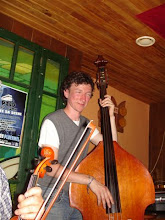I was not there in Budapest
When fire, shots, flags
blew around the stairs of parliament
I heard it in the news
on chat rooms too far away
they were listening in the neighbourhood
I missed the riot
another revolution I'll have to read about
in that news, painted and tainted
but witnessing is a recipe of choice.
When I was 15, I was lucky enough to be welcomed in an east-Berlin soviet flat, to have a conversation about what I had hazardously overheard of as "ostalgie" or the nostalgia for the former life in the East. Up there on this 'shared terrace', where everyone knew each other, where only kids could be heard, where we were served my favorite cherry cake (Kirsch kuchen, a typical cake I used to have in Brandenburg when I lived there) we talked about the woman discovering her Stasi files years after the reunification, about doctors fleeing the economic situation for the comfort of the West. I still ask myself today (reminiscent of the greatness of the Berlin atmosphere) where our understanding should start - what are its boarders? The boarders of historical definitions, political necessity and phenomenons of communication - the power of being represented - is an important limitation to criticize and use at the same time. Many people did not have a balcony nor a city nor a job to reflect from on this transition. Many continue today to exchange vegetables, wine, meat and other home-made glories. Many did not have that screen, they heard it through their neighbours at the market. Reminiscence and every-day lives may continue with that particular feeling that they are unaffected by the landscapes and seas of policy.
Sociological and anthropological perspectives that emerge need insights from elsewhere, participation within and without such boarders of history and representation..
The Kádár Étkezde: Good food for Bad Jews.
2 months ago


No comments:
Post a Comment